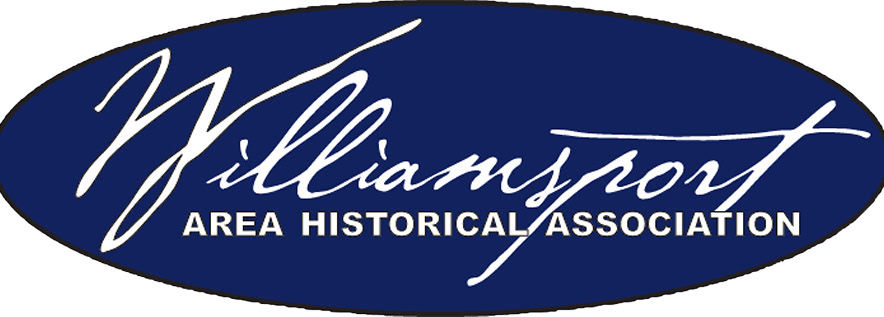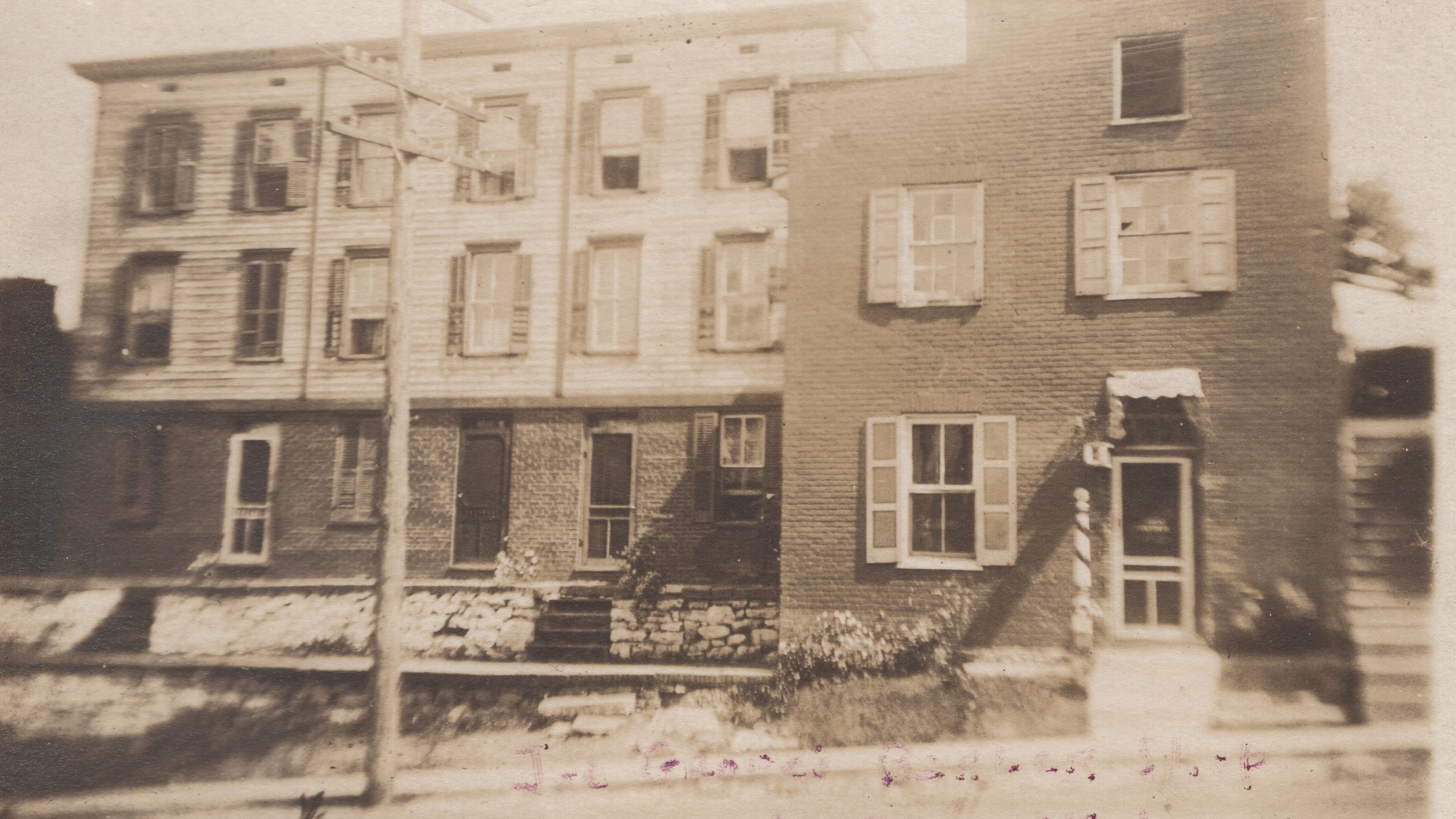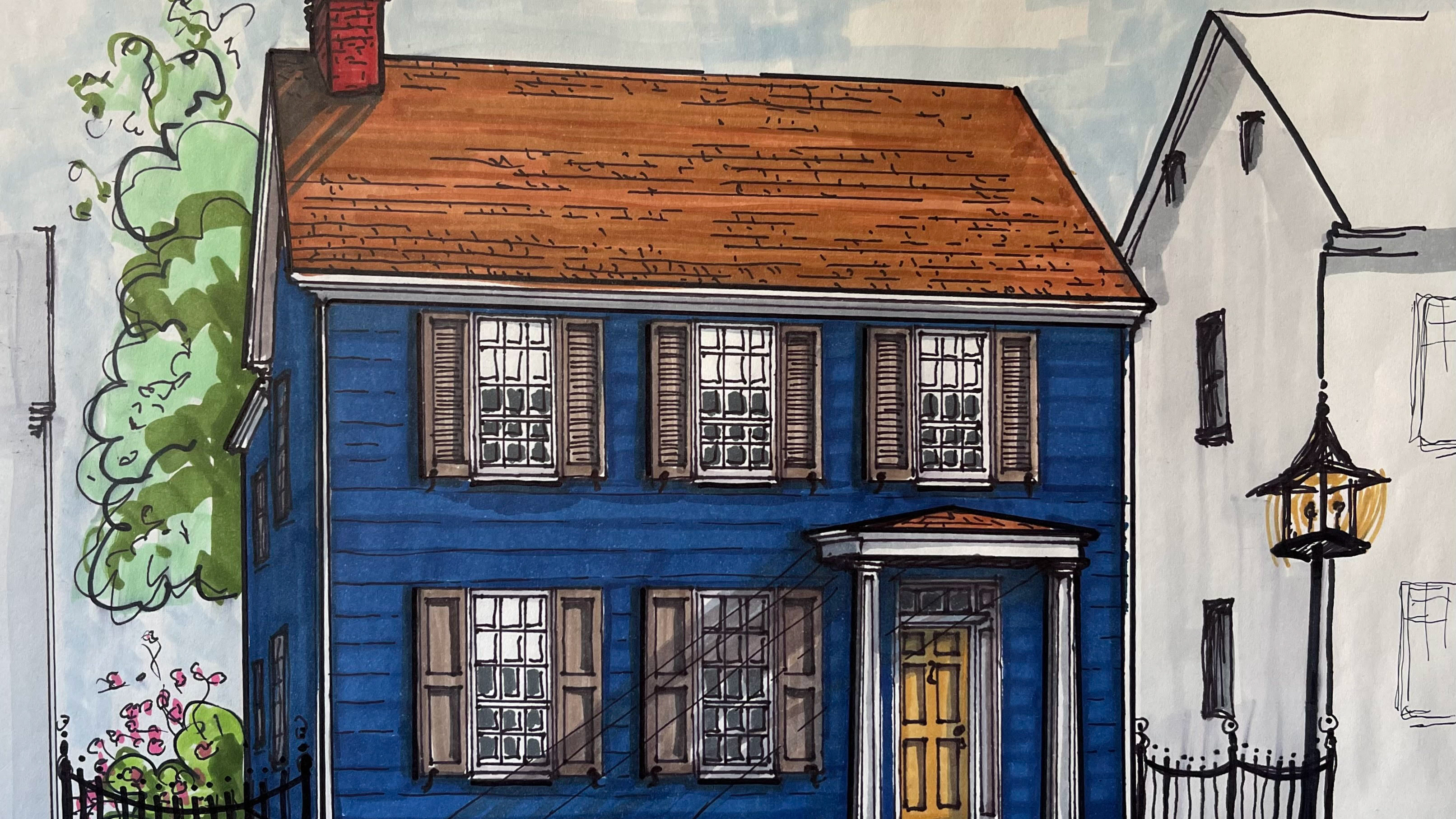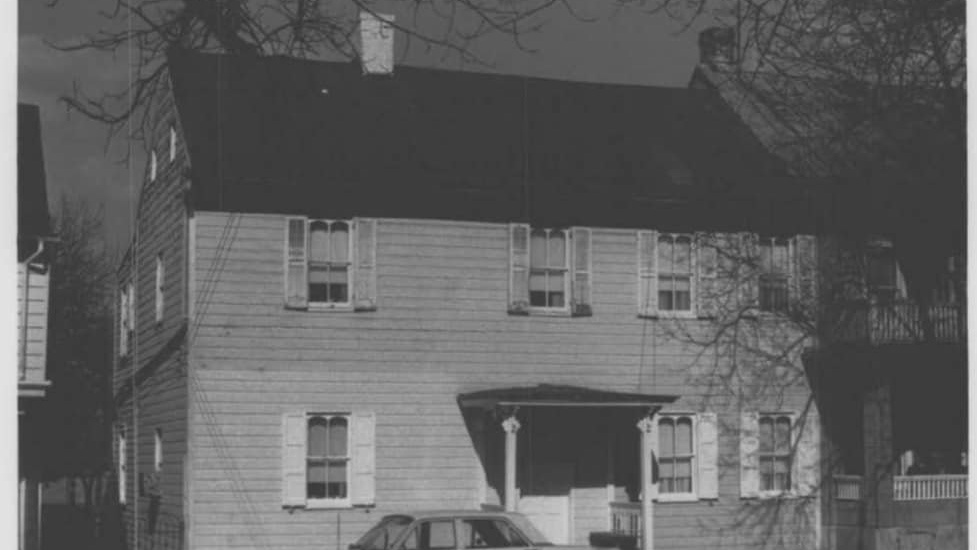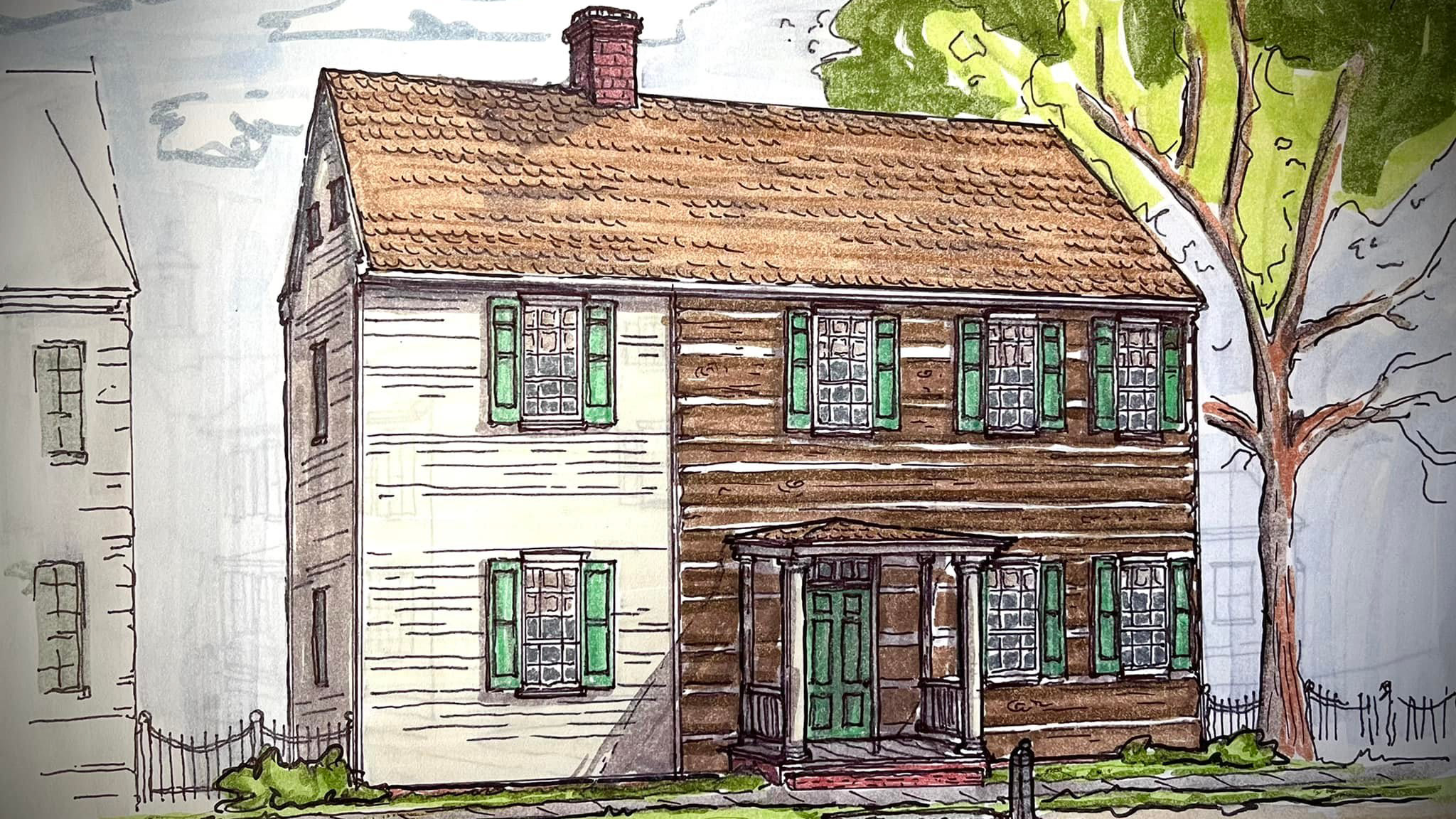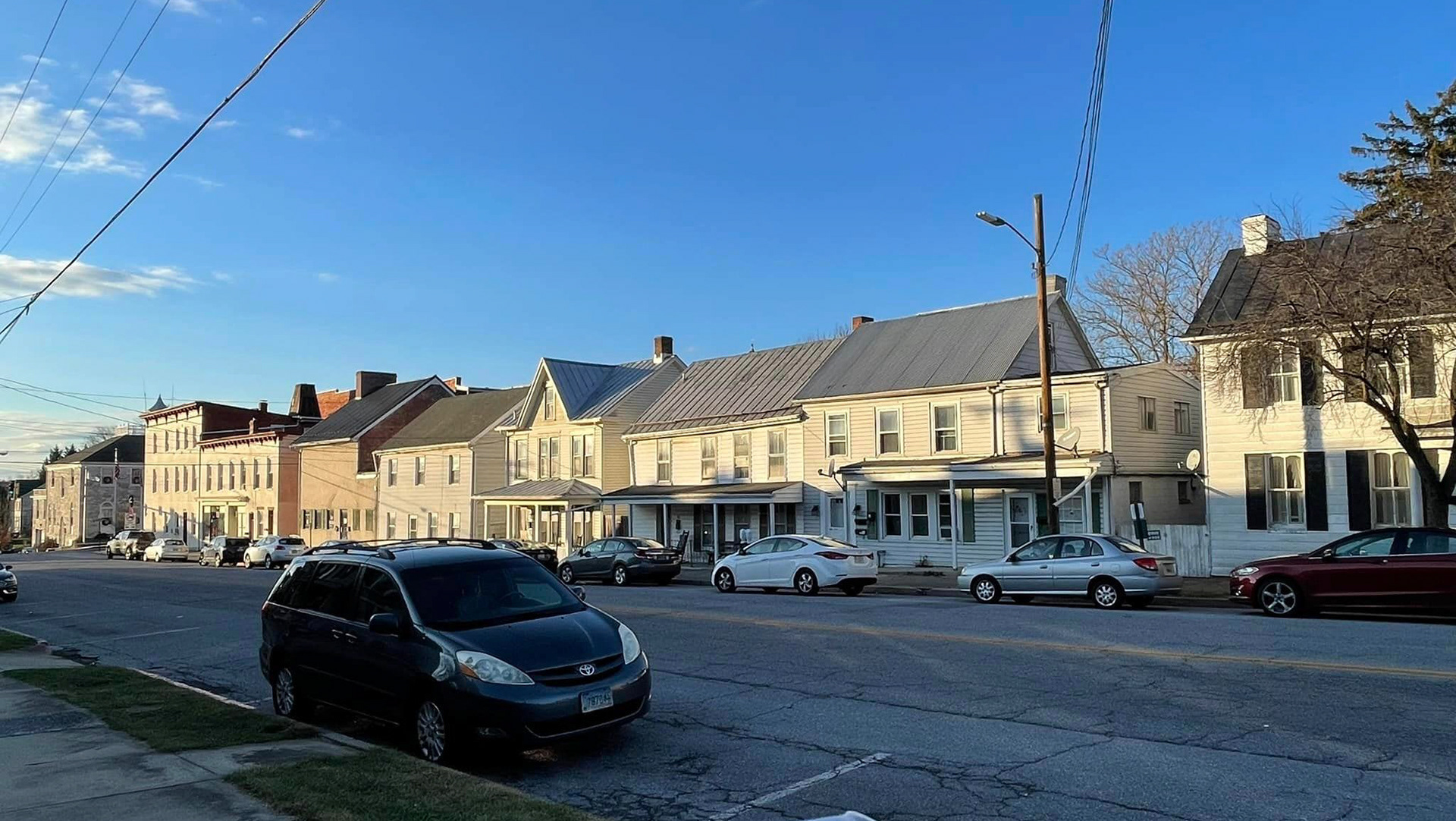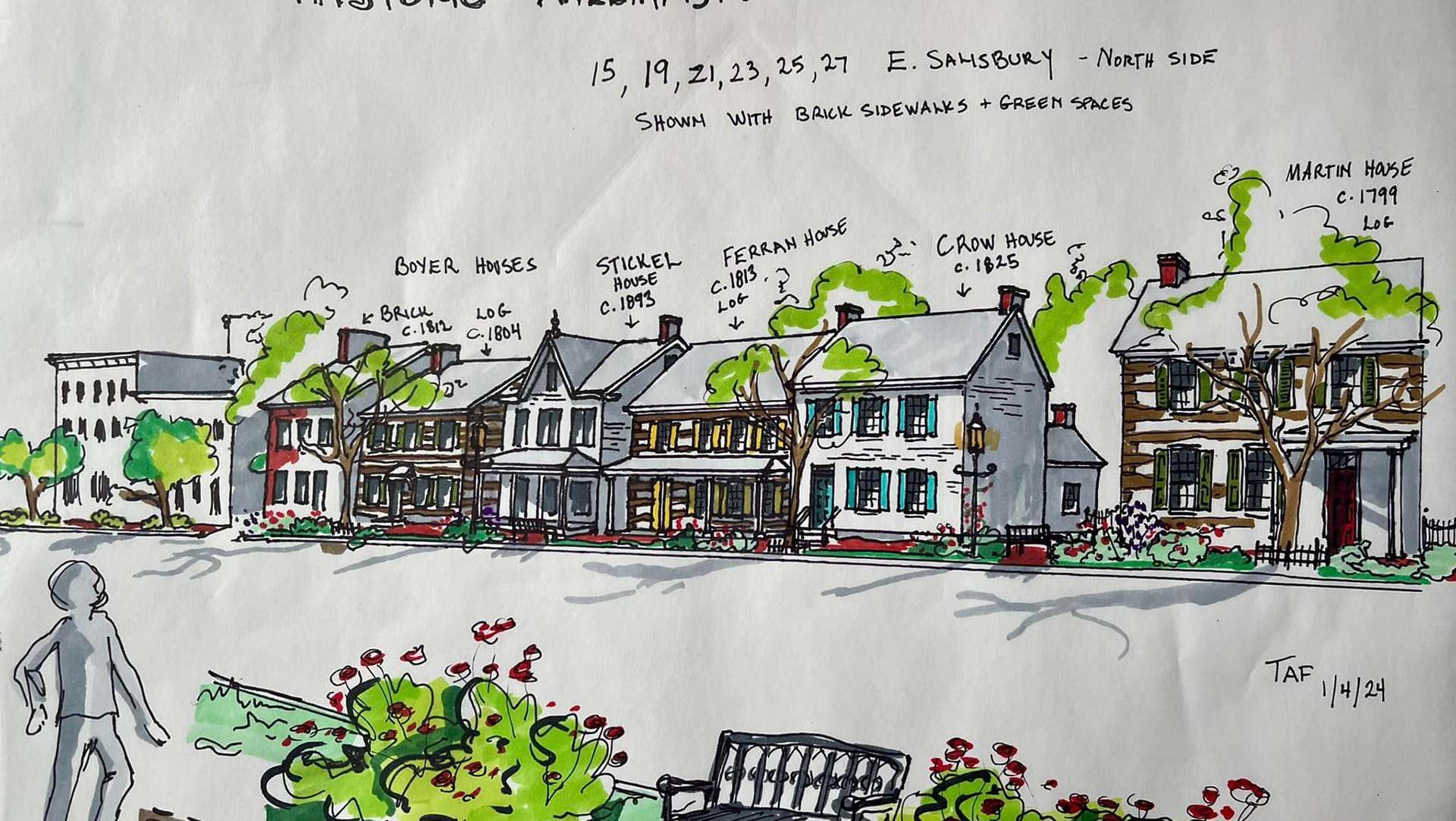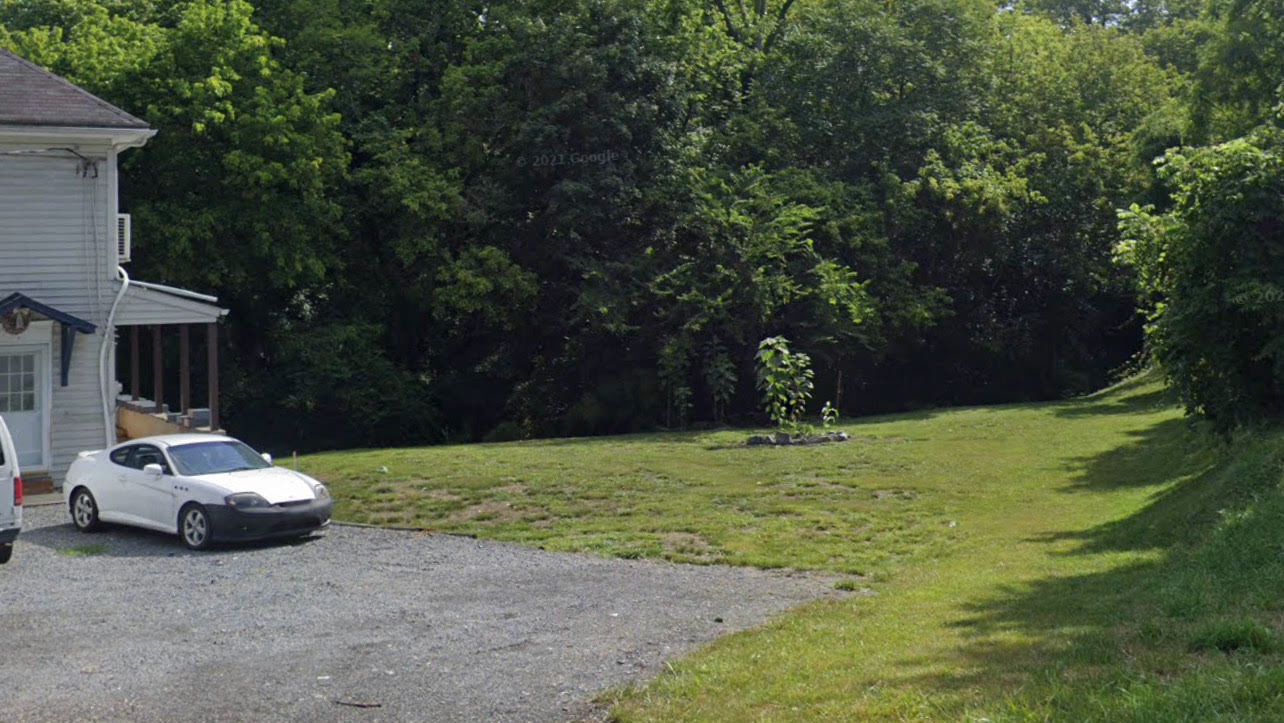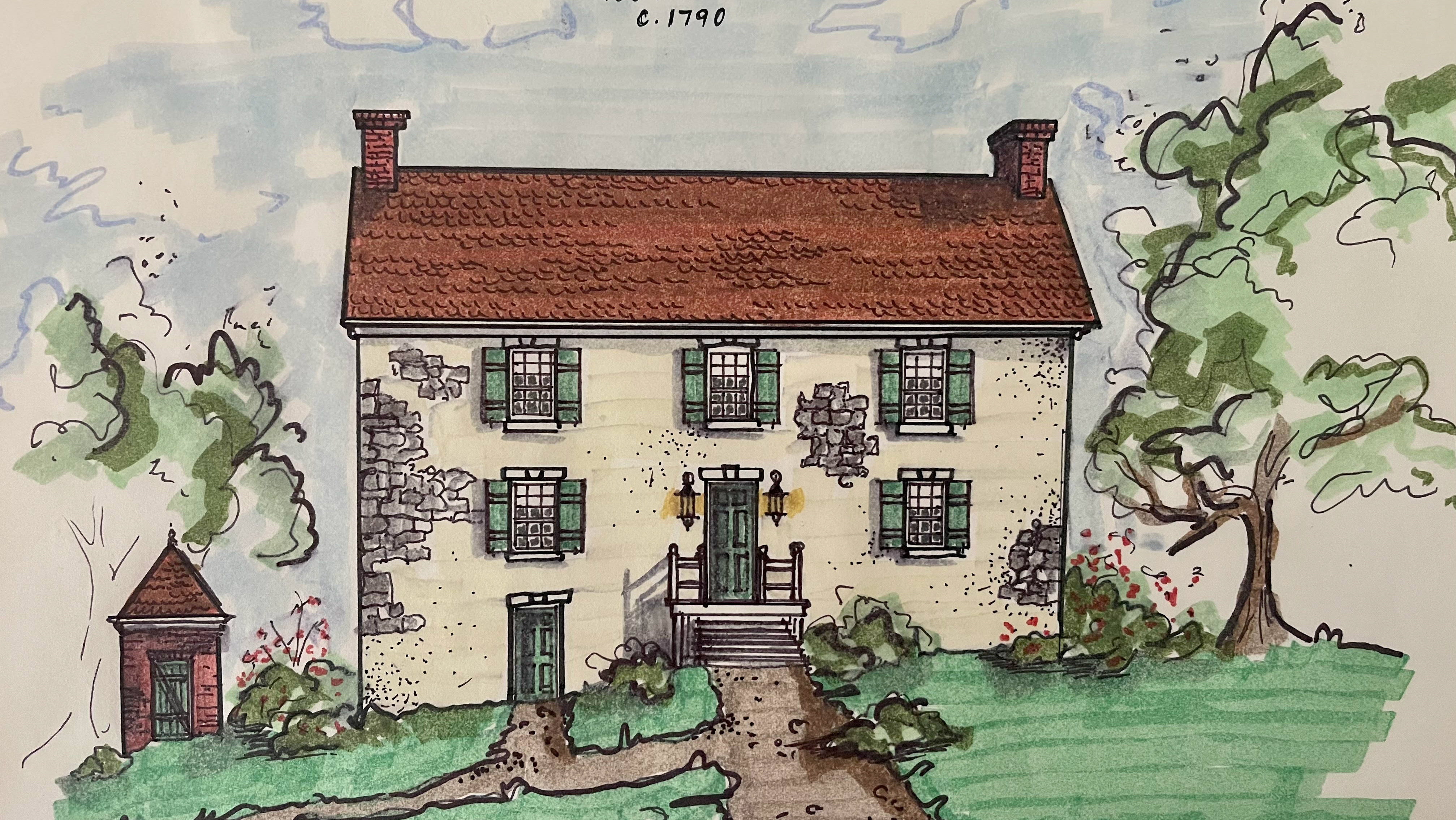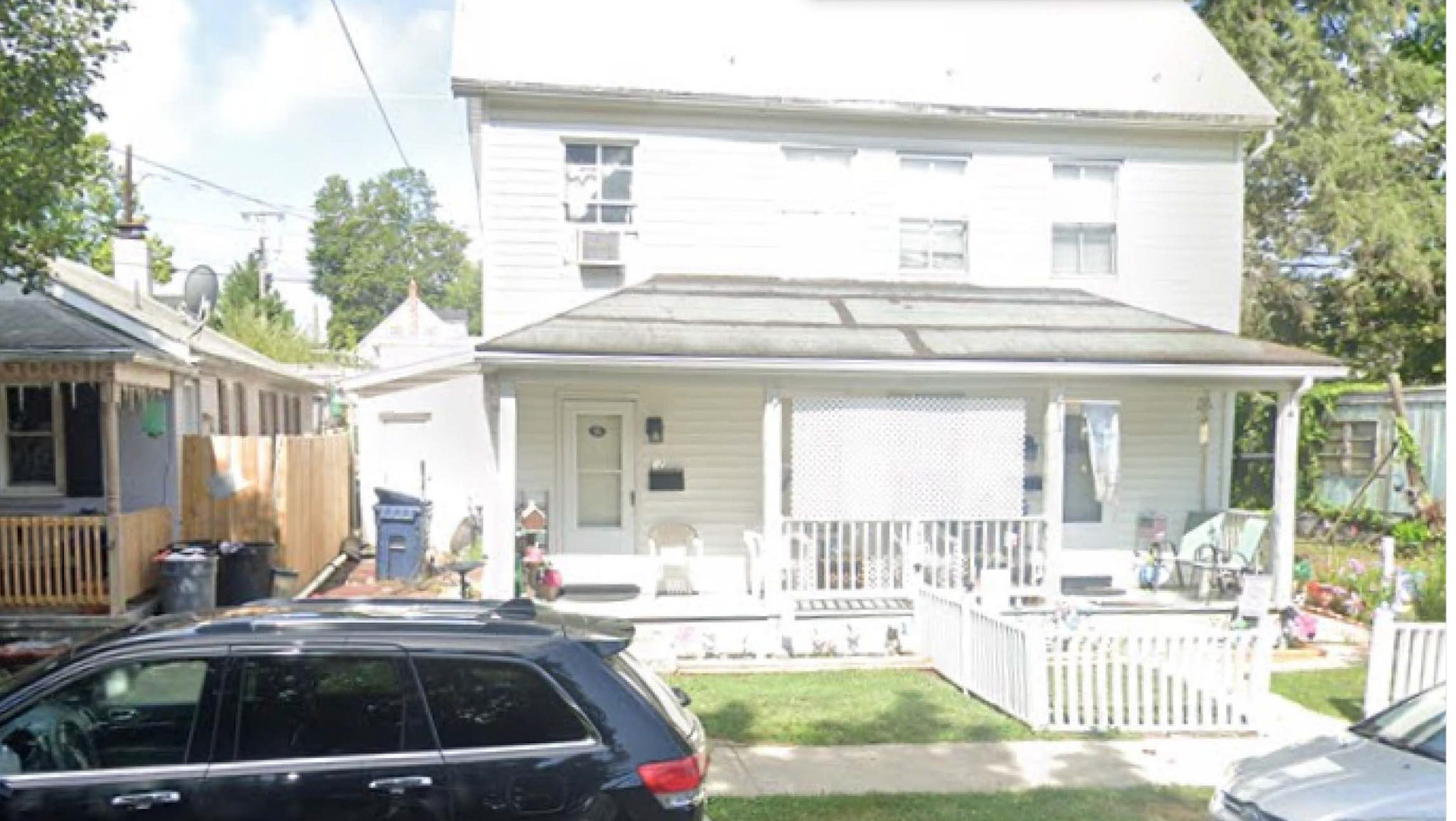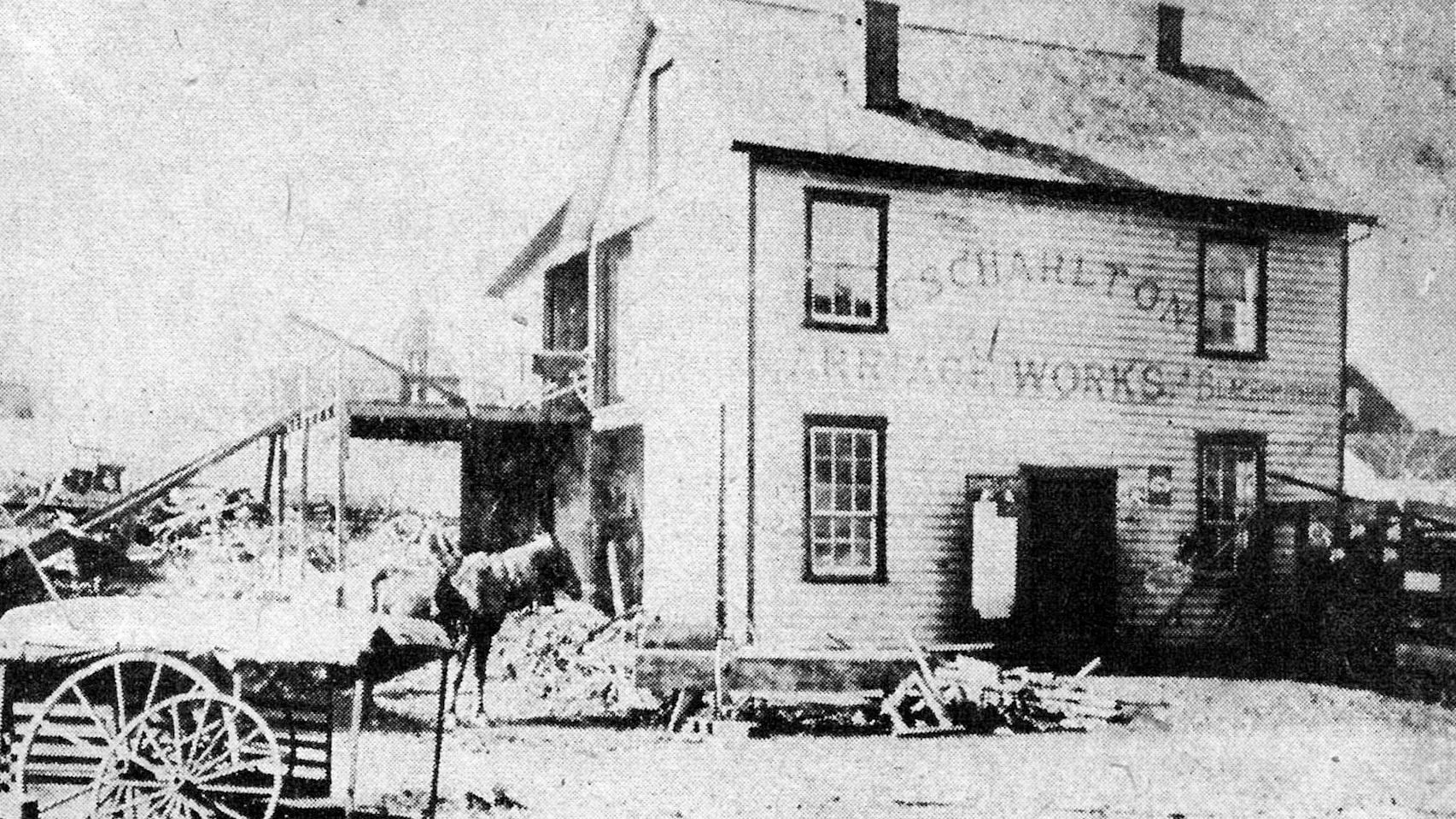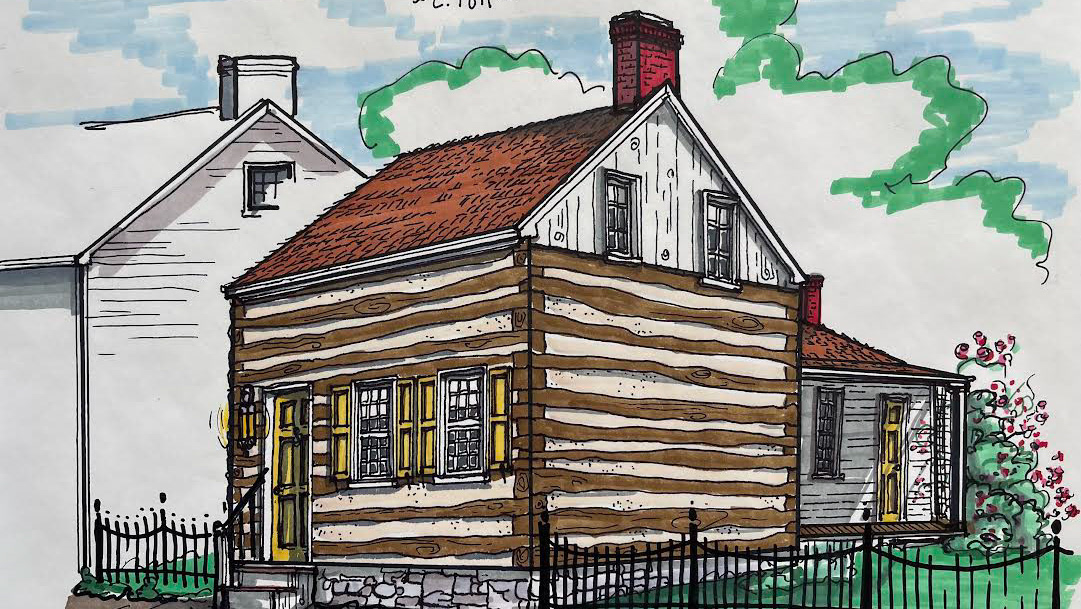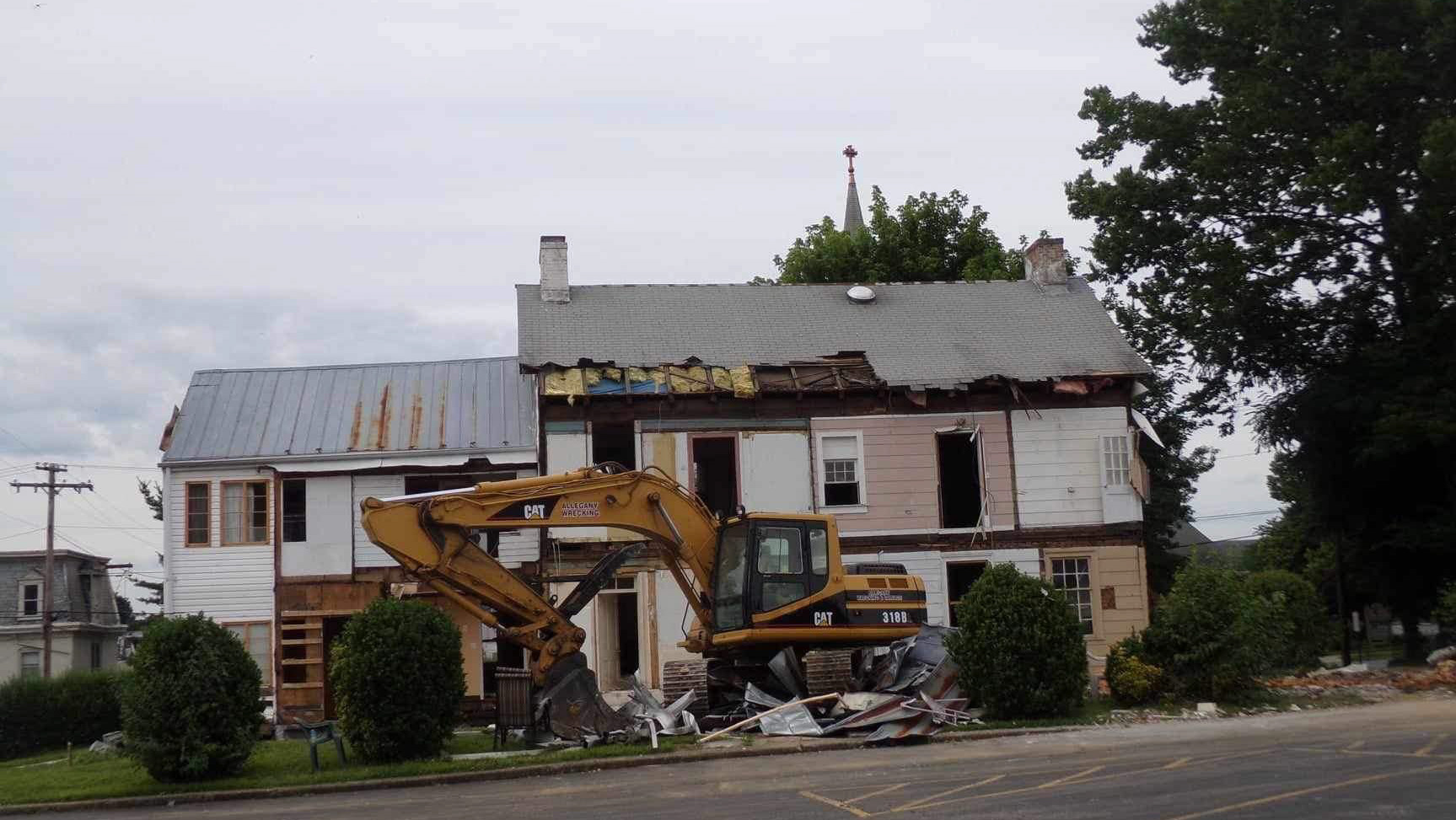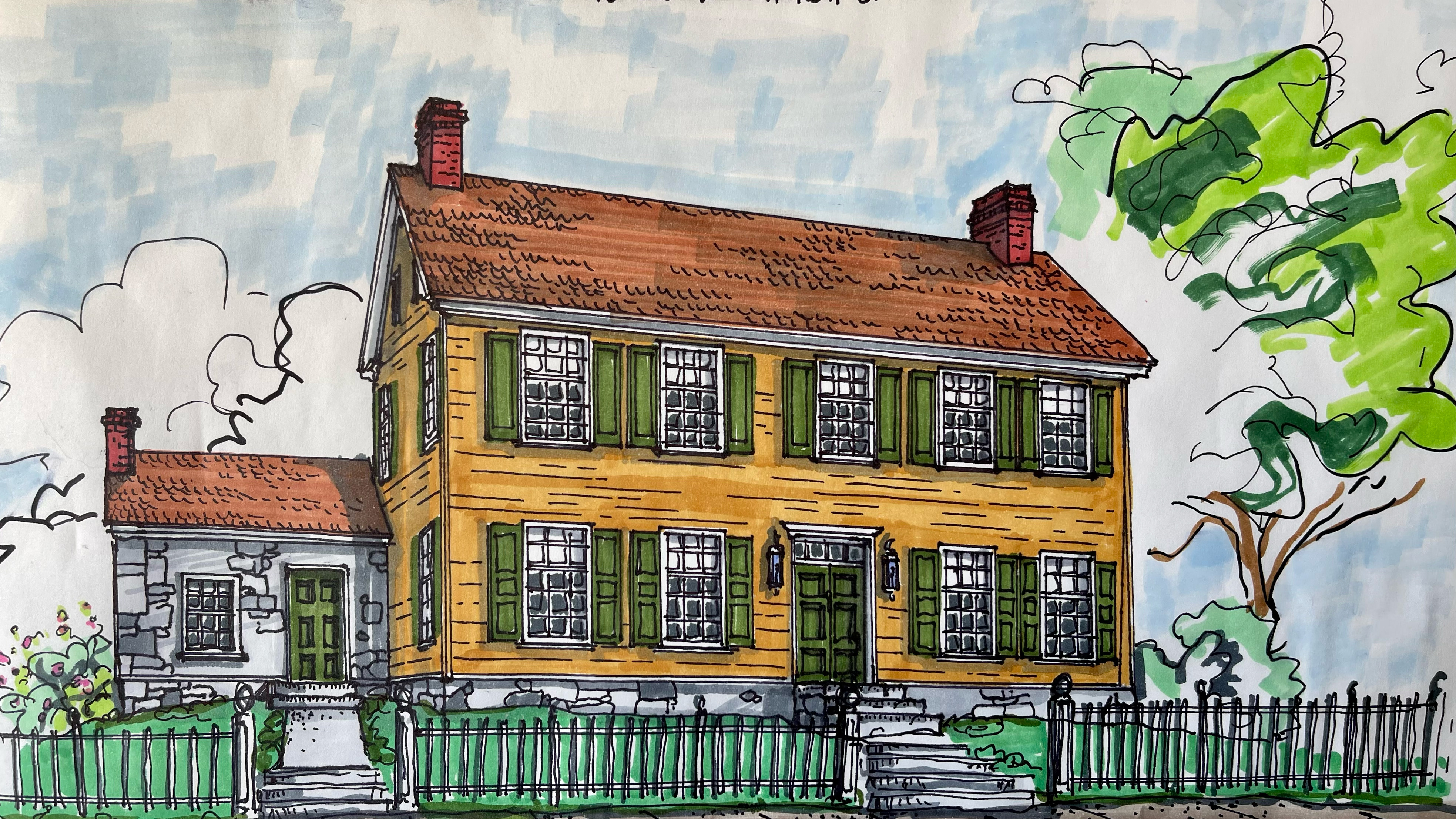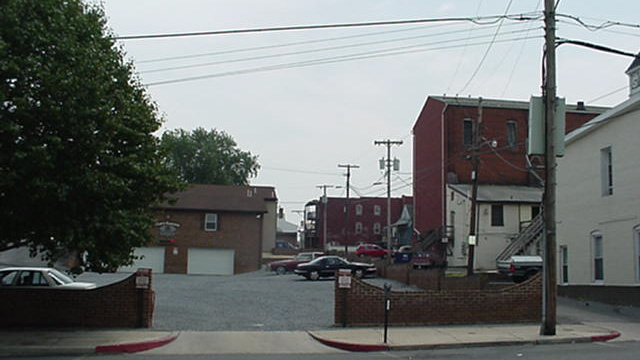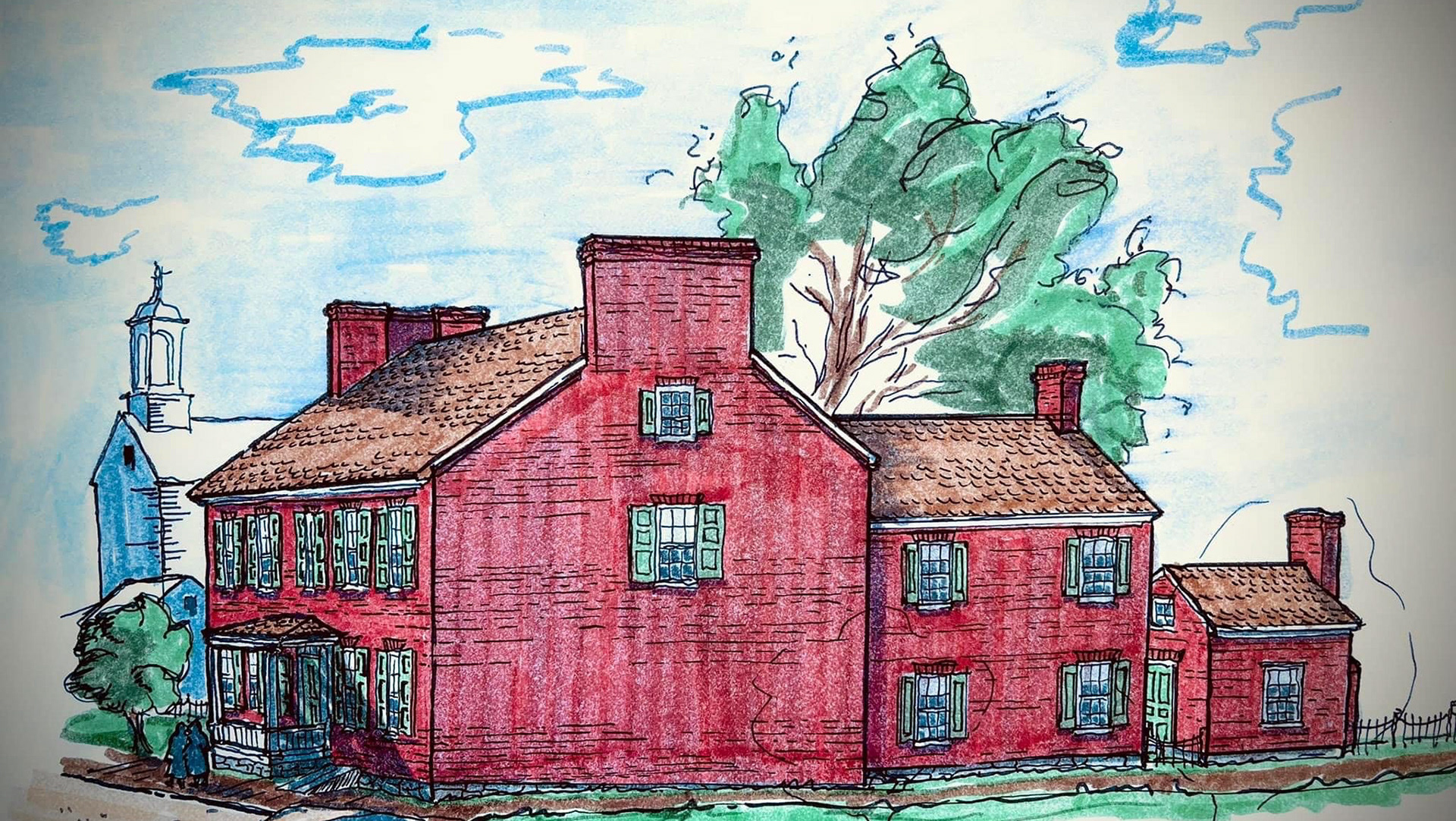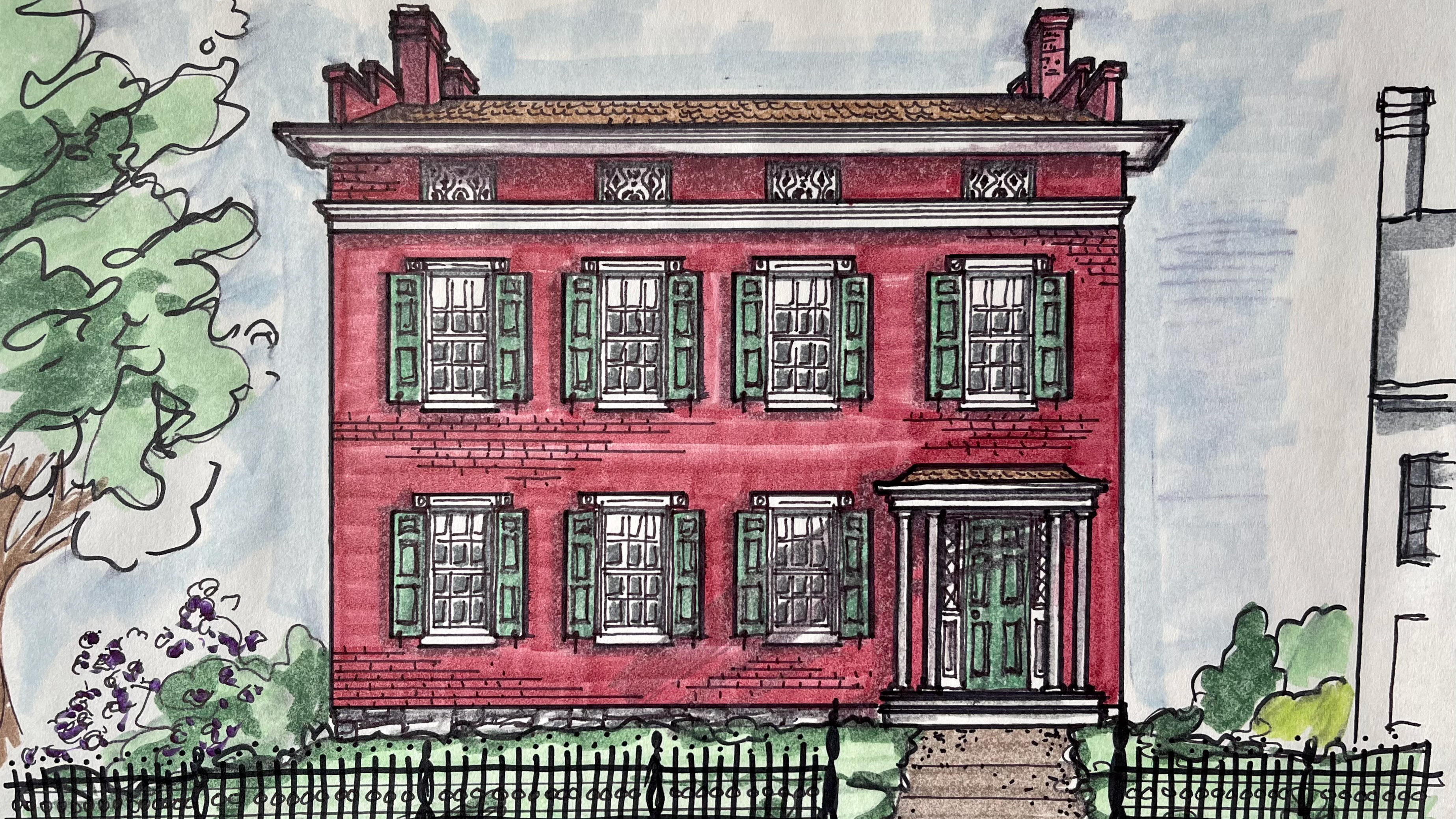At the northwest corner of East Potomac and Artizan Streets sit two nearly identical large, elegant, brick Federal Period houses. Both dwellings have a pair of large chimneys built within the end walls. The houses are 2 ½ stories high and five bays wide with Flemish Bond brickwork at the front and American Bond at the sides. The homes also have slightly larger foundations than the house itself, giving the idea of a water table. The larger of the two houses, which will be the focus of this article, is on the corner and was built in two parts. The rear portion was built first, with the front about 15-20 years later, with a small brick connector now joining the two buildings.
Colonel Jacob Wolf (1776-1839) was one of Williamsport's early settlers. It is unclear exactly where he was born, but by 1804 he was in Williamsport, married to his wife Elizabeth, and had several young children. Wolf first leased lot 192 from Otho Holland Williams in 1804. Lot 192 fronts Artizan street, just north of the corner running behind the corner lot-193. The lease stated the typical verbiage about building a house within three years, fencing the lot, etc. In 1811 Jacob sold the lease with a house and other buildings on it to John Gittinger for $300. This high sum proves that substantial improvements were present at that time. The house COL Wolf built on the lot still stands along Artizan just north from the corner at the southeast of lot 192 and is now connected to the large house fronting Potomac Street. The house is a brick 2-bay wide, four-bay deep, 2 ½ story Flemish bond brick house with double chimneys. In 1824 Edward Greene Williams sold Jacob both lots 192 and 193 in fee simple for $50.
No record was found of any transaction involving lot 193 until 1824, proving it sat empty until then. Williams was divesting many populated lots about this time, giving the holders of the 99-year leases full ownership. After gaining full ownership of the lots, Jacob and Elizabeth Wolf built the two large brick houses side by side on lot 193 fronting Potomac Street. The house directly on the corner at 43 East Potomac was connected to the earlier house behind it at this time.
Jacob Wolf rose to the rank of Colonel in the War of 1812, commanding a regiment at several engagements in Virginia against the British. Later papers show Colonel Wolf's signature giving pensions to his soldiers for their service under him. Jacob was a very active man in the community. He was elected to the Temperance Society in the late 1820s along with other well-known citizens in the town, such as Edward G. Williams, Jacob T. Towson, and others. A race for commissioner in 1830 led to a shocking public feud in the local papers with neighbor and fellow local power player Mr. Van Lear. There were allegations that each other's words had been "perverted" and accusations of "threatening to burn down my home," "assassination," and "the ruination of my credit."
COL Jacob Wolf's obituary on November 22, 1839, states that he died an "honest and wealthy man ." While technically true, because Jacob owned so many properties in Williamsport along the major routes, he was heavily in debt. His vast will and the corresponding documents show an extensive list of debts to be paid when he died. In 1842 Elizabeth Wolf, Jacob's widow, sold their vast collection of properties to John Baker, including "two brick houses beside each other on Potomac Street and one on Artizan Street" for only $300. The deed states that this sale negates all debts to which he was owed. It is unclear how, but the Wolf Family retained or purchased the houses back from Baker, where Elizabeth lived out her final years. Once again, the Wolf family sold the homes in yet another equity case to Thomas Ford in 1866.
The house was sold to Issac Gruber (1819-1900) and Sarah Gruber(1833-1898) in 1889 for $1145. Issac Gruber was the owner of the Potomac Steam Saw and Planing mill, advertising as a "Manufacturer of and dealer in doors, sash, blinds, mouldings, window frames, scroll and fancy sawing neatly and cheaply executed ."
The mill was situated where the parking lot across from the lock house now is. The brick house that is still there was the lumber yard office. The house changed hands several more times, including a long stewardship by the Long Family, that settled in the area in 1831 and now runs the Delightful Dairy just south of town on Spielman Road.
William "Bill" Clipper Sr. and his wife Karen, historians from Burkittsville, purchased the house in 2006 for $159,000 as an investment. Bill was a lover of local history, a collector of antiques and historical artifacts, and a friend of preservation. Through luck, we formed a friendship with Bill's son, Bill Clipper Jr., after his father had passed away, and through that friendship, we learned an interesting story. Bill Sr. had purchased the lovely old mansion with great hopes of restoring it. Mr. Clipper greatly admired Williamsport, its history, and its architecture. He often spoke of his love for the "River Town," as he called it, and looked forward to investing in its future. Fast forward to 2012-2013, and the battle over the future of the old Red Barron building at the corner of Potomac and Artizan Streets was in full force
. Droves of citizens, both local and not, stood up in opposition to the placement of the Sheetz where the historic c.1815 Market House stood. Bill spoke of the importance of the old building, the change in aesthetics, and the overall movement in town that its demolition and replacement with the Sheetz would bring. Even though most citizens opposed the destruction, demolition permits were granted, and the 200-year-old Market House, one of the finest ever built in the state, funded by our early citizens, was bulldozed for a gas station.
As an act of defiance, Mr. Clipper allowed his investment to fall into disrepair to show what happens when a place forgets the importance of its past. The result proved his point, as the old house now sits in a sad state in one of the most recognizable spots in town, approaching demolition by neglect. A new owner purchased the old home last year, and this community hopes to see the important structure restored.
Preserving our town's historic buildings should be a higher priority. All major manufacturing has long left the town, and what is left is the hope that the grit and perseverance that the citizens and groups such as Port 44 are now undertaking will bring tourism and a renewed spirit. Williamsport's history is among the richest in the region, and its brick, stone, and wood legacy should be better protected. This place matters.
